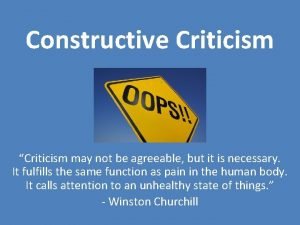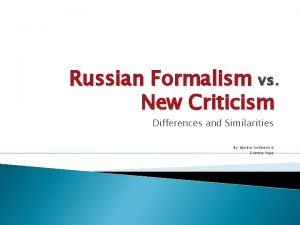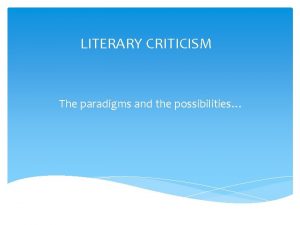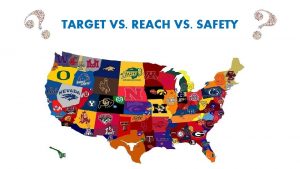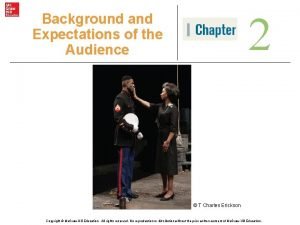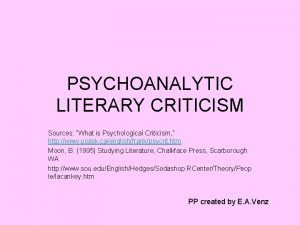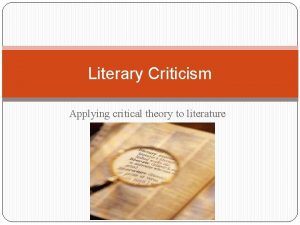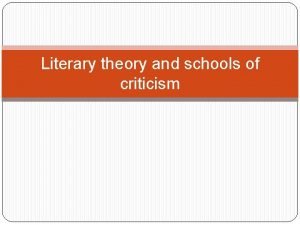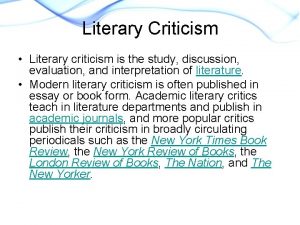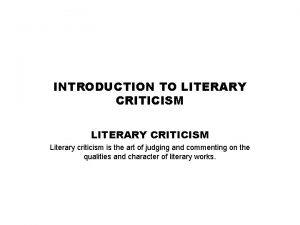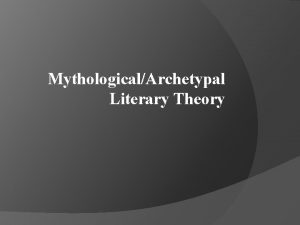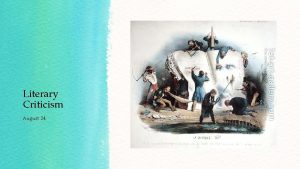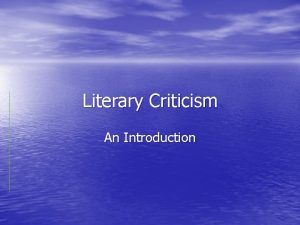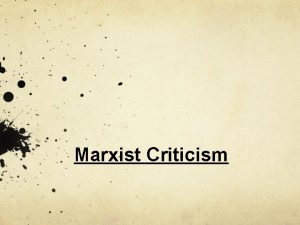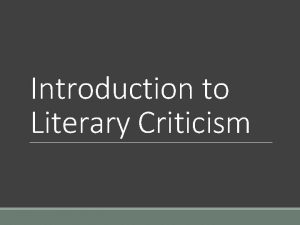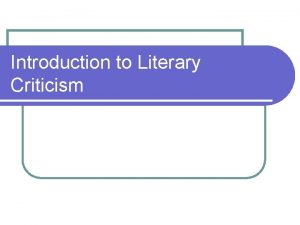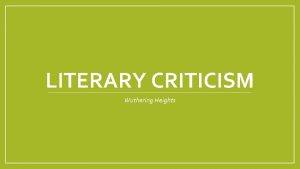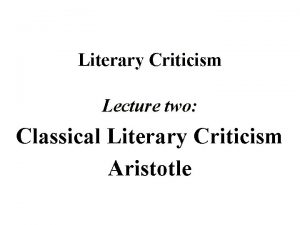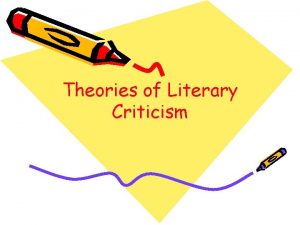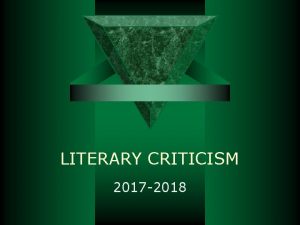Literary Theory and Schools of Criticism Literary Theory












- Slides: 12

Literary Theory and Schools of Criticism

Literary Theory and Schools of Criticism • Think of these as different lenses that focus on different aspects of work. • Each school of criticism focuses on aspects of the work that it considers important. • There is no need to limit yourself to one lens.

Formalism New Criticism • Examining the literary structure of a work for how it creates meaning. • What we mostly do.

New Historicism • Tries to examine work as a product of its historical, cultural, and political time. • Examines how the work interprets the events and ideas of its time.

Post-Colonial Criticism • Examines work particularly in light of whether it is produced by artists from a colonizing power or a colonized place. • Looks at power structures created by colonialism. • Questions Western literature as canonical and Western history as definitive.

Feminist Criticism • Examines work for how it reinforces or undermines patriarchal structures and the oppression of women. • A broader, related type of criticism is Gender Studies and Queer Theory, which examines how a work deals with marginalized people beyond just women.

Critical Race Theory • Critical Race Theory examines how cultural perceptions of race shape a work • Looks at work in light of whose story is being told and by whom—are white writers telling the stories of people of color? • Questions the idea of an objective white viewpoint.

Marxist Criticism • Examines a work based on class differences— economic and otherwise. • Looks at the implications of capitalist system. • Considers socioeconomics as the ultimate source of our experience.

Ecocriticism • Considers the way we represent, interact with, and construct the environment around us, both natural and man-made. • Looks at how nature is represented in the text. • Considers how the treatment of marginalized or oppressed people can be connected with the treatment of the land.

Postmodern Criticism • There is no spoon… • Time flies like an arrow.

Some Typical Feminist Lens Questions • • • How is the relationship between men and women portrayed? What are the power relationships between men and women (or characters assuming male/female roles)? How are male and female roles defined? What constitutes masculinity and femininity? How do characters embody these traits? Do characters take on traits from opposite genders? How so? How does this change others’ reactions to them? What does the work reveal about the operations (economically, politically, socially, or psychologically) of patriarchy? What does the work imply about the possibilities of sisterhood as a mode of resisting patriarchy? What does the work say about women's creativity? What does the history of the work's reception by the public and by the critics tell us about the operation of patriarchy? What role the work play in terms of women's literary history and literary tradition? (Tyson)

Some Typical Marxist Lens Questions • Whom does it benefit if the work or effort is accepted/successful/believed, etc. ? • What is the social class of the author? • Which class does the work claim to represent? • What values does it reinforce? • What values does it subvert? • What conflict can be seen between the values the work champions and those it portrays? • What social classes do the characters represent? • How do characters from different classes interact or conflict?
 Constructive criticism vs destructive criticism
Constructive criticism vs destructive criticism What is the difference between formalism and new criticism
What is the difference between formalism and new criticism What is feminist criticism
What is feminist criticism Reach schools safety schools and
Reach schools safety schools and Define historical criticism
Define historical criticism Descriptive criticism vs prescriptive criticism
Descriptive criticism vs prescriptive criticism What is psychological criticism in literature
What is psychological criticism in literature Criticism of critical theory
Criticism of critical theory Structuralism theory in literature
Structuralism theory in literature Huntsville city schools powerschool
Huntsville city schools powerschool Literary evaluation
Literary evaluation Advantages and disadvantages of literary criticism
Advantages and disadvantages of literary criticism Mythological literary theory
Mythological literary theory
